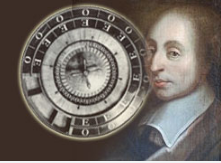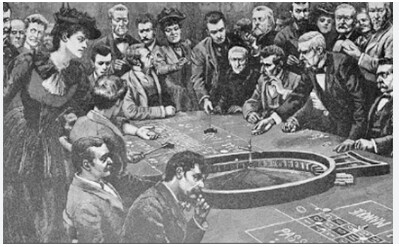Origins of Roulette

Roulette (the word itself means “little wheel” in French) originated in 18th-century France. It is thought to have evolved from a combination of earlier games, including “Roly-Poly” and “Even-Odd,” which were popular in European gambling halls. The game was further developed by Blaise Pascal, a French mathematician, who is sometimes credited with laying the groundwork for the wheel’s design in the 17th century. He was attempting to create a perpetual motion machine, and while he didn’t succeed in that endeavor, the design of the wheel became a precursor to modern roulette.
François Blanc and the Development of Modern Roulette
In the early 1800s, the French casino owner François Blanc is credited with refining and popularizing the version of roulette that we know today. He made significant changes to the wheel and introduced the now-famous single-zero wheel. This refinement helped make the game smoother and more consistent. It’s said that Blanc also made a deal with the devil (at least in legend) when he built the famous Casino de Monte-Carlo in Monaco. According to myth, Blanc chose the number “666” (the “number of the beast”) as the house number, implying he made a pact with dark forces for success in his casino ventures!
Early Days in America

Roulette was brought to the United States in the early 19th century by French settlers. It quickly gained traction, especially in places like New Orleans, which had a heavy French influence at the time. The game became popular in the city’s bustling gambling establishments and spread throughout the U.S.
However, the version of roulette that became most popular in the U.S. had a significant change: the introduction of an additional pocket on the roulette wheel — the double-zero (“00”). This was added to the wheel in order to increase the house edge, which in turn made the game more profitable for casinos.
Key Differences: European vs. American Roulette
- European Roulette has 37 pockets, numbered 0 to 36. The 0 is green, and the numbers are alternately red and black. The odds in European roulette are better for the player because there is only one zero pocket.
- American Roulette has 38 pockets, numbered 00, 0, and 1 to 36. The extra 00 pocket increases the house edge, making the odds less favorable for players compared to European roulette.
House Edge:
- In European Roulette, the house edge is 2.7% (because of the single-zero).
- In American Roulette, the house edge increases to 5.26% (because of the additional double-zero).
Types of Bets in Roulette
In both versions of roulette, players can place various types of bets, which can either cover multiple numbers or just one.
Inside Bets:
- Straight Up: A bet on a single number.
- Split: A bet on two adjacent numbers (horizontally or vertically).
- Street: A bet on three numbers in a row.
- Corner: A bet on four numbers forming a square.
- Six Line: A bet on two adjacent rows (6 numbers).
Outside Bets:
- Red or Black: Bet on whether the ball will land on a red or black number.
- Odd or Even: Bet on whether the number will be odd or even.
- High or Low: Bet on whether the number will be between 1-18 (low) or 19-36 (high).
- Dozen: Bet on one of three groups of 12 numbers (1-12, 13-24, 25-36).
- Column: Bet on one of the three vertical columns of numbers.
Roulette in Modern Casinos
As roulette continued to grow in popularity throughout the 19th and 20th centuries, various casinos across the world began to feature the game, especially in places like Monte Carlo, Las Vegas, and Atlantic City. These casinos would eventually standardize certain rules and formats, while still offering different versions (European, American, and sometimes French).
One key feature that has remained consistent is the spinning wheel itself. A dealer spins a ball in the opposite direction of the wheel, and the ball eventually lands in one of the numbered pockets, determining the winning number.
French Roulette: A Special Case
In addition to European and American roulette, there’s a specific version called French Roulette, which is quite similar to European roulette but has some unique rules. For example, the La Partage rule comes into play, where if the ball lands on 0, players lose only half of their even-money bets (on red/black, odd/even, or high/low). This slightly reduces the house edge further to 1.35%, which makes it one of the best versions of the game for players.
Roulette and Online Gaming
With the advent of online casinos in the late 1990s and early 2000s, virtual roulette became one of the first games to transition to the digital realm. Players can now enjoy various versions of roulette from the comfort of their homes, including live dealer roulette, where a real dealer operates the game through a live video feed.
Fun Fact:
The number 17 is often considered the luckiest number in roulette, as it’s the most commonly bet-on number, made famous by James Bond, who always bet on 17 in the novels and films. The number 17 also sits in the middle of the wheel, making it a central choice.
